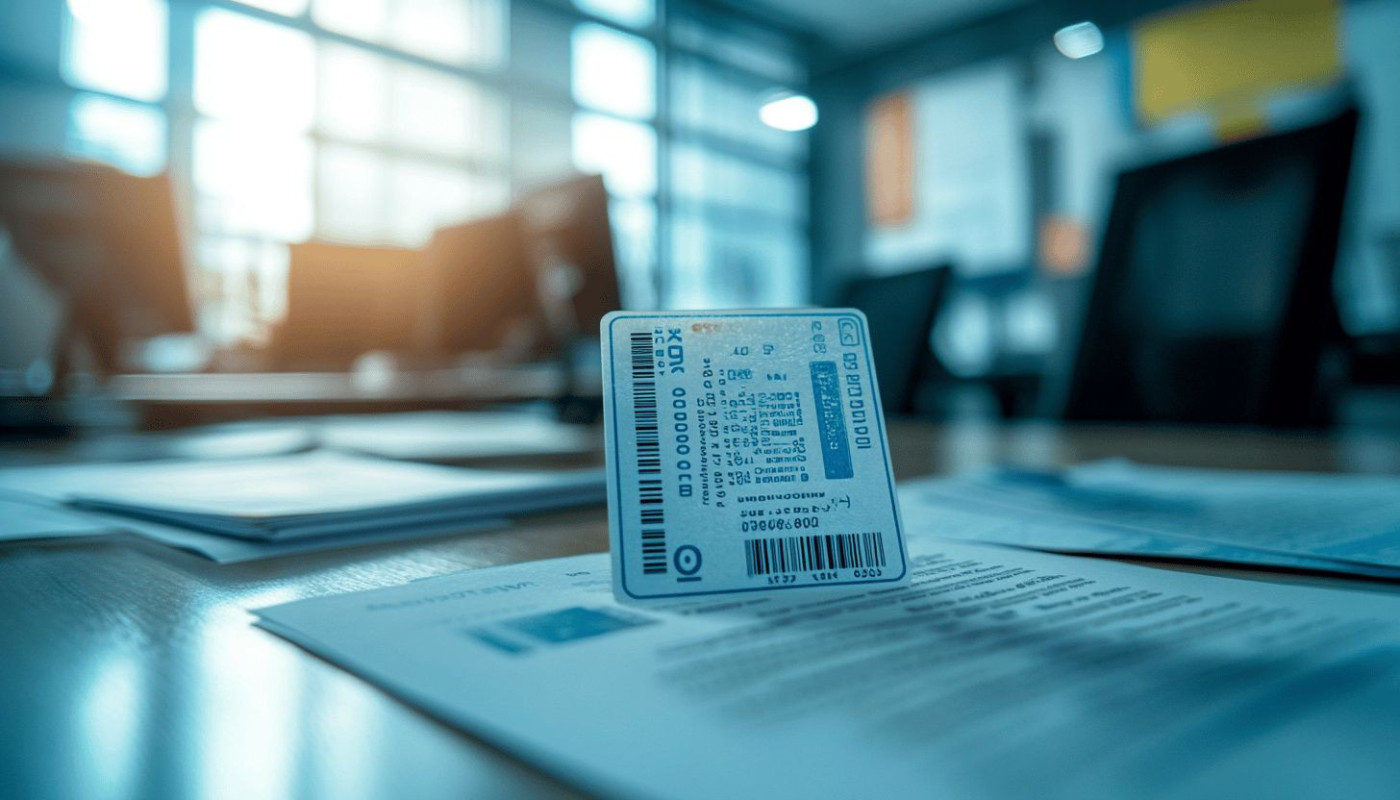Table of contents
In today's rapidly evolving financial landscape, clarity and transparency are paramount for any business engaged in global transactions. Understanding the significance of obtaining a Legal Entity Identifier (LEI) online could be the key to unlocking smoother regulatory compliance and enhanced trust in financial dealings. Delve deeper into this article to discover why securing an LEI online matters now more than ever, and how it can streamline your business operations.
What is a legal entity identifier?
A legal entity identifier (LEI) serves as a unique, globally recognized reference for identifying distinct legal entities participating in financial transactions across the world. This global identifier system was established in response to the need for enhanced transparency and risk management within the international financial system, especially after the global financial crisis. The LEI code itself is a 20-character alphanumeric string, designed according to the ISO 17442 standard, which ensures uniformity and interoperability across jurisdictions and markets.
Legal entity identifiers are assigned to a broad spectrum of organizations, including corporations, banks, asset managers, government bodies, and even non-profit entities engaged in financial activities. The adoption of an LEI code allows regulators, market participants, and counterparties to accurately identify all parties involved in financial transactions, improving the integrity and traceability of data within financial markets. The ISO 17442 standard prescribes not only the format but also the data attributes associated with each LEI, such as the official name of the entity, its registered address, country of registration, and, where applicable, details of its ownership structure. This level of detail provides a comprehensive view of financial actors and their interconnections, facilitating more robust regulatory oversight and smoother compliance with anti-money laundering (AML) and know-your-customer (KYC) requirements.
An LEI acts as a crucial instrument in mitigating systemic risk and preventing market abuse. It enables efficient aggregation and analysis of data by authorities, making it easier to detect patterns of risk concentration and interconnectedness among legal entities on a global scale. Financial institutions, trading venues, and regulators now require the use of LEI codes in a growing number of jurisdictions for reporting, transaction processing, and risk assessment activities. The streamlined, standardized identification process not only simplifies the reporting burden for legal entities but also increases operational efficiency throughout the entire financial ecosystem.
The implementation of the legal entity identifier system has become a foundational component for the regulatory frameworks supporting global financial stability. By fostering greater transparency, the LEI system helps underpin trust and confidence in financial markets. Its ongoing evolution, guided by the ISO 17442 standard and supported by the Global Legal Entity Identifier Foundation (GLEIF), ensures that the LEI remains fit for purpose as financial markets continue to develop and innovate.
Why obtain an LEI online?
The shift to obtain LEI online is rapidly transforming compliance and business operations for organizations worldwide. Online registration platforms now offer a seamless path for companies to secure a Legal Entity Identifier, meeting regulatory demands with remarkable efficiency. This trend is driven by the rising demand for digital onboarding, where identity verification and documentation happen remotely through digital verification methods. The entire efficient LEI application process—from submitting required documents to receiving the unique identifier—is managed through secure portals designed to protect sensitive data and reduce processing times.
Accessibility has significantly improved as digital solutions allow entities to complete the process from anywhere, eliminating the delays and logistical constraints of traditional paper-based or in-person methods. Secure identifier issuance is assured by rigorous encryption protocols, offering confidence in the authenticity and privacy of transmitted corporate data. The digital onboarding model also ensures that the data provided during registration aligns with global standards, a critical factor for multinational organizations seeking recognition across financial markets.
For chief compliance officers, the ability to obtain LEI online means streamlined workflows, better audit trails, and enhanced risk management. Automated reminders help ensure timely renewals, and integration with enterprise systems reduces manual input errors. Additionally, the online environment supports bulk applications for multiple subsidiaries, expediting group-wide compliance.
Selecting a reputable online service is essential. For example, entities can visit lei number to start the process, ensuring a straightforward and secure experience. This approach to online registration is setting a new benchmark for regulatory compliance and operational efficiency in the global marketplace.
Regulatory requirements and compliance
Regulatory compliance in today's financial landscape demands robust systems for counterparty identification, with the Legal Entity Identifier (LEI) emerging as a mandatory component in various jurisdictions. Financial authorities such as the European Securities and Markets Authority (ESMA), the Commodity Futures Trading Commission (CFTC), and the Reserve Bank of India have all integrated mandatory LEI requirements into their financial regulation frameworks, particularly for transaction reporting and market transparency. The LEI plays a pivotal role in Know Your Customer (KYC) and Anti-Money Laundering (AML) processes by enabling financial institutions to precisely identify and verify legal entities engaged in trading, investment, and cross-border transactions. Institutions must ensure accurate LEI data in regulatory filings to meet stringent compliance obligations, reduce operational risk, and avoid penalties. Global harmonization efforts, led by initiatives like the Global Legal Entity Identifier Foundation (GLEIF), have elevated the LEI into a critical tool for fighting financial crime, promoting market integrity, and fostering trust in the international financial system.
Advantages for businesses and institutions
Obtaining a Legal Entity Identifier (LEI) online provides a foundation for business credibility and institutional transparency in global markets. Entity validation through the LEI system ensures that each organization’s identity can be verified quickly and accurately, significantly reducing the risks associated with fraudulent activities and misidentification. For financial institutions and businesses operating across multiple jurisdictions, an LEI enables streamlined cross-border transactions by standardizing how entities are recognized internationally, which simplifies compliance with regulatory requirements and facilitates smoother business relationships. The online registration process also enhances operational efficiency by reducing the administrative burden and turnaround time typically associated with manual validation procedures. In risk management, the LEI introduces a reliable method for counterparties to perform due diligence, monitor exposure, and assess potential systemic risks within global financial networks. Integrating LEI data into internal risk assessment systems allows for more precise tracking of entity relationships, which is particularly valuable when evaluating the stability and risk profile of complex corporate structures. Altogether, adopting an LEI online not only strengthens the legitimacy and trustworthiness of an organization but also provides tangible benefits in transparency, efficiency, and risk mitigation, which are indispensable in today’s interconnected financial landscape.
Future trends in LEI adoption
LEI adoption is poised for transformative growth as financial industries worldwide accelerate digital transformation initiatives. Rapid integration of LEIs with blockchain technology is paving the way for more secure and transparent transactions, as distributed ledgers demand verifiable and interoperable identity to reduce fraud and streamline validation. Digital identity frameworks are increasingly incorporating LEIs to enhance entity recognition and enable seamless cross-border business verification, supporting regulatory requirements and anti-money laundering efforts. Automated compliance systems, leveraging real-time LEI data, allow organizations to respond instantly to dynamic regulatory changes, minimizing manual intervention and risk exposure. Looking ahead, future finance landscapes will see LEI adoption become foundational in supporting interoperable identity solutions, fostering trust and operational efficiency across global capital markets and digital ecosystems.
Similar articles





